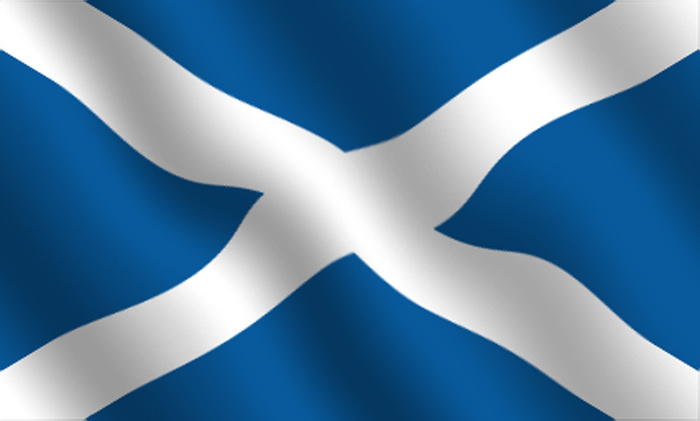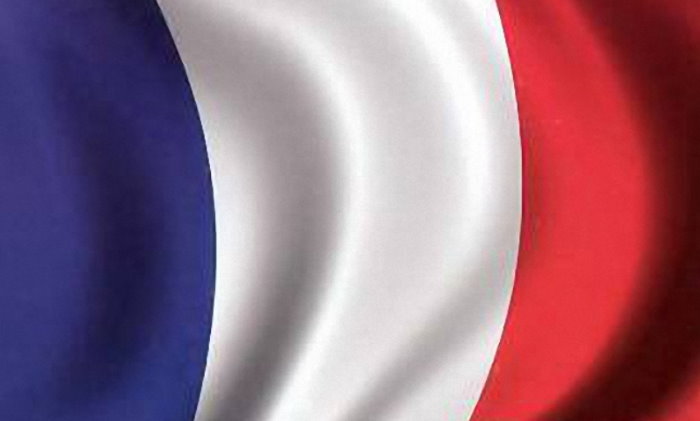"Scotland the Brave" is a patriotic song and one of the main contenders to be considered as a national anthem of Scotland. In June 2006 the Royal Scottish National Orchestra conducted an online poll on their website, asking visitors to choose a favourite to be Scotland’s national anthem. With over 10,000 votes cast, "Flower of Scotland" came first with 41% of the votes, followed by "Scotland the Brave" with 29% - "Highland Cathedral" 16% - "A Man's A Man for A' That" 7% - "Scots Wha Hae" 6%.
It is of surprisingly recent origin, as it was published first around 1911 in a Boys’ Brigade
pipe tune book. But the tune appears to date from about 1891-5 when it was published in Norman
Macdonald’s Gesto Collection of Highland Music under the title "Scotland for Ever” although
the sentiment dates back to at least the 1820s. It was probably originally a flute solo.
It is always listed as “Traditional”. In other words no one knows for certain who actually
composed the tune.
| The lyrics to Scotland The Brave were written by Scottish journalist, writer, author, songwriter, raconteur, after dinner speaker, historian and broadcaster Cliff Hanley (1923-1999) in 1951 for performer, producer and music shop owner Robert Wilson who needed a song to close the act of his performance at a Christmas Scottish review musical show at the Glasgow Empire Theatre. Robert Wilson, who was at the time at the peak of his career, paid £25 to Hanley but refused to get the copyright. "Naw, naw son, this is far too good. I’d be cheating you if I took the rights to this" said Wilson. The song soon became popular with Scots people and was quickly adopted as an unofficial national anthem. |

|
The lyrics make no mention of wars against the English and read more as a reflection of Scots brave exploits coupled with a yearning for home. As such they more accurately reflect the emotional reflections of a Scottish soldier serving in the British army far from his highland home although it is not in any way melancholic in its tone.
By the late 19th century the sound of the pipes was universally recognized
as a precursor to the arrival of Scottish regiments whose military prowess was well known
throughout the world. As well as instilling fear in the enemies of the British Empire
it would raise the moral of those they were coming to relieve.
Its entire tone is militaristic, stirring, and resonant of the Victorian's pride
in their Empire and Army among whom the Scottish regiments were portrayed
and perceived as the most combative and militarily elite. The warrior traditions
of the Scots run deep and the song is felt by Scots to be a celebration
of their bravery as a race, individually as well as nationally.
The version below is from The Chieftains.

Chorus Hark when the night is falling Hear! Hear the pipes are calling, Loudly and proudly calling, Down thro’ the glen. There where the hills are sleeping, Now feel the blood a-leaping, High as the spirits of the old Highland men.
Towering in gallant fame,
High in the misty Highlands,
Chorus
Far off in sunlit places,
Chorus |

Refrain Ecoute lorsque la nuit tombe Entends, entends l’appel puissant et fier des cornemuses Ici bas à travers la vallée. Là où les collines dormaient regarde maintenant le sang ne faire qu’un tour Et l’esprit du vieux montagnard ressurgir.
Imposantes, élégantes et glorieuses
Haut dans la brume des Highlands
Refrain
Loin des endroits ensoleillés
Refrain |
There is another set of lyrics known as "My Bonnie Lassie"
sung by The Ames Brothers.

Drums in my heart are drummin, I hear the bagpipes hummin, My Bonnie Lassie’s comin over the sea. My heart with her she’s bringin, I hear the blue bells ringin, Soon we’ll be highland flingin, My love and me.
Chorus
Somewhere a ship and crew,
Chorus
Sad are the lads she’s leavin,
Chorus |

Dans mon coeur les tambours battent, et j’entends les cornemuses rugir, Ma jolie bien-aimée arrive de par dela la mer. Elle apporte mon coeur avec elle, J’entends les clochettes des campanules carilloner, Bientôt nous convolerons dans les Highlands, Ma bien-aimée et moi.
Refrain
Quelque part un navire et un équipage,
Refrain
Tristes sont les jeunes hommes qu’elle quitte,
Refrain |
|
Karaoke photos
|
700 pipers & drummers in Calgary
|
|
My Bonnie Lassie
|

